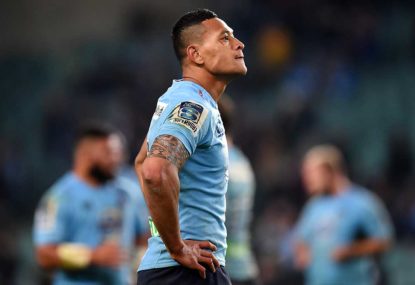At half-time during the Hurricanes–Brumbies match, I was contemplating that for once I could write a positive article about the state of rugby in Australia. Something with this heading, perhaps: “Come back coach Stephen Larkham, all is forgiven.”
The scoreline was 21–14 to the Brumbies. The three converted Brumbies tries had come in a miraculous nine-minute burst, and the third alone saw a brilliant exchange of ten passes, with no rucks, between a blitzkrieg of runners raced down the middle of the field before half-back Joe Powell, with his second touch, dived across the line to score a sensational try.
Even in the glory days of the Brumbies, we never saw a try like this. Was Stephen Larkham finally developing his Brumbies into the famed attacking machine that he used to drive to so many victories?
There was a hint of wonderful ensemble rugby from the kick-off. The Brumbies took the ball near their try line and in 11 phases opened up the Hurricanes defence before a handling mistake ruined what could have been a terrific try from the first attack of the match.
After conceding two early tries to a rampant Hurricanes side, the Brumbies struck back in what seemed like a decisive, match-winning manner.
At half-time, this fight back had seen the Brumbies run 378 metres to the Hurricanes’ 263.
So during the half-time break, I was earnestly composing an article based on the notion that Stephen Larkham had finally justified his appointment to the Wallabies coaching staff later this year by this new creation of the old Brumbies.
Then in the second half, the wonderful new Larkham Brumbies disintegrated into the old Larkham Brumbies.
The import (from the New Zealand provincial system) playmaker Wharenui Hawera was sin-binned two minutes into the second half.
Suddenly there were holes all over the field for the Hurricanes to run through. When he came back on the field, Hawera started to chip kick rather than pass and run. The directness and the quality of the Brumbies passing attack disappeared, too.
There was no more scoring from the Brumbies.
The Hurricanes scored 42 points in a dazzling display of the modern basketball/rugby that Beauden Barrett is taking to a level we have not seen before in the rugby game.
Remember here that the Brumbies, before this defensive collapse, had the best defensive record in the 2017 Super Rugby tournament. They had conceded 120 points and 13 tries. Now in one game, the Brumbies conceded eight tries.
The basketball/rugby game that adds a third dimension, the air with the kick pass, to the two other attacking dimensions, running and passing, has been a Holy Grail of the New Zealand system ever since Wayne Smith, an All Blacks coach, started talking about it a decade or so ago.
And in Beauden Barrett, the basketball/rugby game has a sensational practitioner of all the dimensions.
It is time now to place Barrett, with Dan Carter and Stephen Larkham, as one of a trinity of the greatest playmakers of the professional era.
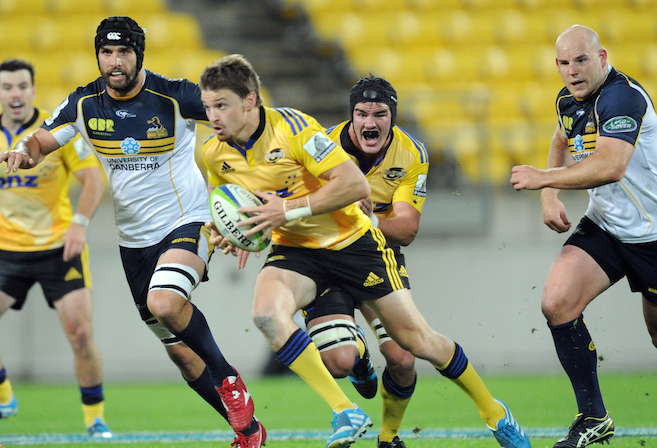
So with the positive Larkham article given a red card, I tuned into the Waratahs–Southern Kings game for, hopefully, something more positive than the Brumbies’ collapse to write about.
All week, Waratahs captain Michael Hooper had talked about the need for his team to start fast in a bid to reap a bonus-point victory. Amazingly, the Waratahs had not led at half-time this season.
There was some hope that the bonus-point victory was going to be recorded, too, if the Waratahs were anywhere near their best form, because the Kings had won only once this season.
A bit like someone giving up meat for Lent, the Waratahs promised to put away their box kicks at the start of the match.
Here is something I’d like to know, though: why was box kicking in the Waratahs’ game in the first place?
In my opinion, the box kick is the most stupid tactic used in rugby. It invariably gives away the ball to the opposition inside the half of the kicker. And as the Highlanders (a team held back by Aaron Smith’s box kicking) have found out all this season, this is a situation that leads to the opposition scoring tries
Getting back to the Waratahs, their slow starts this year have affected their defence (where they had conceded 21 first-half tries) and their attack (where they had scored only seven tries) in the first 40 minutes of play.
As it happened, the Waratahs gained a first half lead of ten points, thanks partially to a break-out by Israel Folau from the Waratahs’ try line which led to Rob Horne scoring near the posts.
The best and worst of Folau, a vastly over-rated player, was seen in this movement.
He made the break-out. Good. Then he passed to Horne for the 40m run into score. Good. But when Horne looked like being run down, Folau loitered about 15 metres away and made no effort to support him. Bad.
Very bad, in fact.
This is the aspect of Folau’s play that is most annoying. He can’t or won’t read the development of plays. He is a lazy player, physically and mentally. He engages himself for only a few moments in a game.
This is unforgivable for a player being paid a $1 million. It is unforgivable, too, as far as Folau and the Waratahs’ coaching staff are concerned, that he is being allowed to meander through games, doing not much, making few tackles and the occasional run.
The Folau who played so brilliantly against the British and Irish Lions in 2013 has disappeared into a shadow of that player.
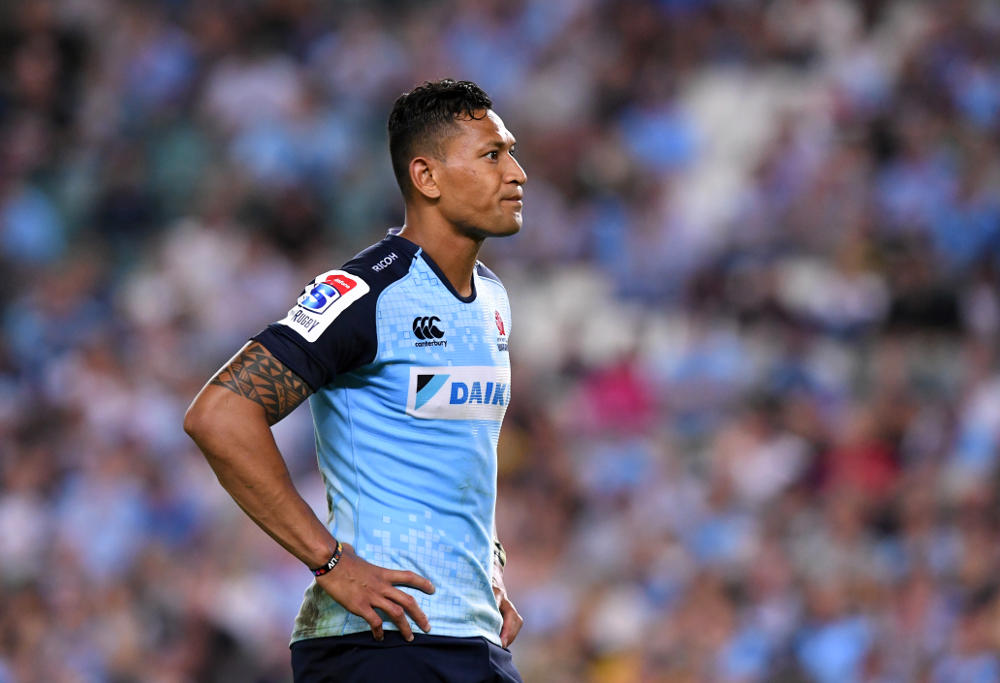
He now represents everything that is wrong with the woeful Waratahs. They indulge in too much talk about what they are going to do and, as Michael Hooper pointed out after the match, they display “no action” backing up that talk.
A serious tough-love coach, which Daryl Gibson is not, unfortunately, would consider putting Folau in the reserves to encourage him to start producing the winning rugby he is paid so handsomely to do when he is finally allowed back on the field.
In the second half, the Waratahs essentially collapsed in their set pieces, lineouts and scrums, and in their general play.
In the 77th minute, when the Kings smashed the Waratahs’ scrum once again and were awarded, rightly, a penalty try, the booing of the crowd started. Many of them had switched off well before this, some of them leaving early.
Others in the boxes, I was told, had switched their television sets from the rugby to the rugby league!
The Waratahs, the team that should be the pride of Australian rugby, conceded 17 turnovers, made 11 handling errors and conceded 26 unanswered points to a Kings side that would probably be beaten by one of the stronger club sides in Sydney.
The players and coaches deserve all the criticism being heaped on them. Right now they are the worst-ever woeful Waratahs, in my opinion. And the opinion of others more knowledgeable than me.
Tom Decent in The Sun-Herald ran a provocative, explosive interview with Bob Dwyer which hammered home some valid truths: “It was the worst game I’ve seen for a long time. The standard of club games is higher. If you compare it to last year’s grand final between Sydney University and Norths, that was way better than it in standard.
“There is no doubt the Waratahs have a very large number of players who are not up to Super Rugby level … They were just poor. I can’t think of one part of their game that was satisfactory.”
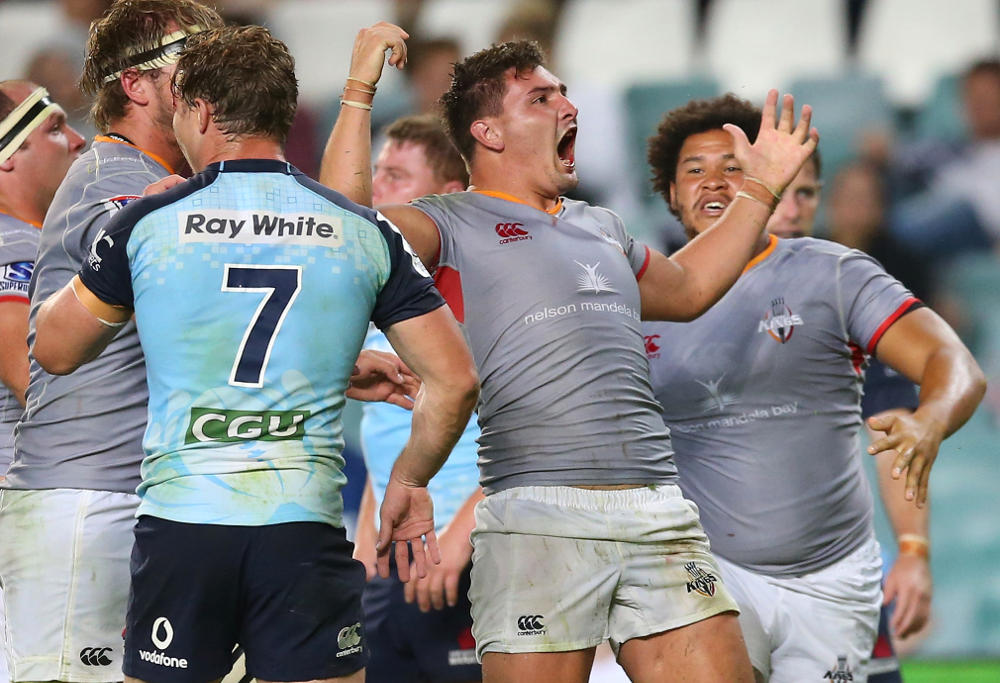
This brings me to the issue of high-performance ratings. How has the Waratahs’ coaching staff and the ARU high-performance unit allowed the situation to develop where systems and players are clearly not up to standard?
When you have the chance to select the best players from the Sydney grade competition, how do you end up with players who shouldn’t ever be considered Super Rugby possibilities?
Where is the proper analysis done on who is selected for the Waratahs squad?
Why was coach Daryl Gibson allowed to give places in the side in the last two years to a prop who couldn’t make it in New Zealand and a winger who no New Zealand Super Rugby franchise wanted any part of?
How can the defence and set-piece coaches of the Waratahs keep their jobs after the debacles of this season? And why are these assistant coaching appointments invariably “job for the boys” matters?
Why isn’t there a much better connection between the vibrant club rugby scene in Sydney and the lacklustre Waratahs franchise?
Why aren’t passionate and informed former NSW coaches like Bob Dwyer and Rod Macqueen (the coach of the unbeaten Waratahs in 1991) given significant roles in the Waratahs franchise?
Roger Davis, the chairman of NSWRU, was very quick to demand that monies saved from ousting the Force (presumably) from the Super Rugby tournament should go to NSWRU to promote the game in Sydney. No way. The money, or a large chunk of it, should go directly to the Sydney and Brisbane clubs, the heartland of Australian rugby.
Keep the hands of the commissars like Roger Davis off this money.
The irony about all this is that this weekend the two Australian teams that are facing being axed from next year’s Super Rugby tournament, the Rebels and the Force, showed far more ticker and resilience than either the Brumbies or the Waratahs.
Both these teams were much better coached than the Brumbies and Waratahs. They had game plans that made sense. And the players responded intelligently and with passion to the tough task in front of them.
The Chiefs had to battle right to the end of their match against a fired-up Force side which played a disruptive game that flummoxed the Chiefs into numerous errors.
Incidentally, the 14,000+ crowd was significantly larger than the 11,000+ (but much less according to people there) who watched in misery the Waratahs going down to defeat at Allianz Stadium.
You would like to think that, after putting their supporters through the most excruciating agony of ineptitude, the Waratahs players, coaching staff and management would be lethal in their analysis of what is rotten within the franchise and take the surgeon’s knife to cut it.
I am not holding my breath for this to happen.
At the Waratahs, there seems to be a sort of death wish, a perception that it is all too difficult and that by muddling through somehow things will come right.
There is nothing about the woeful Waratahs that matches the spirit of the Rebels, who fought to the end against the Sharks in Durban. The last action of that match was a successful penalty which Reece Hodge (a Manly club product) booted over with a nerveless precision.
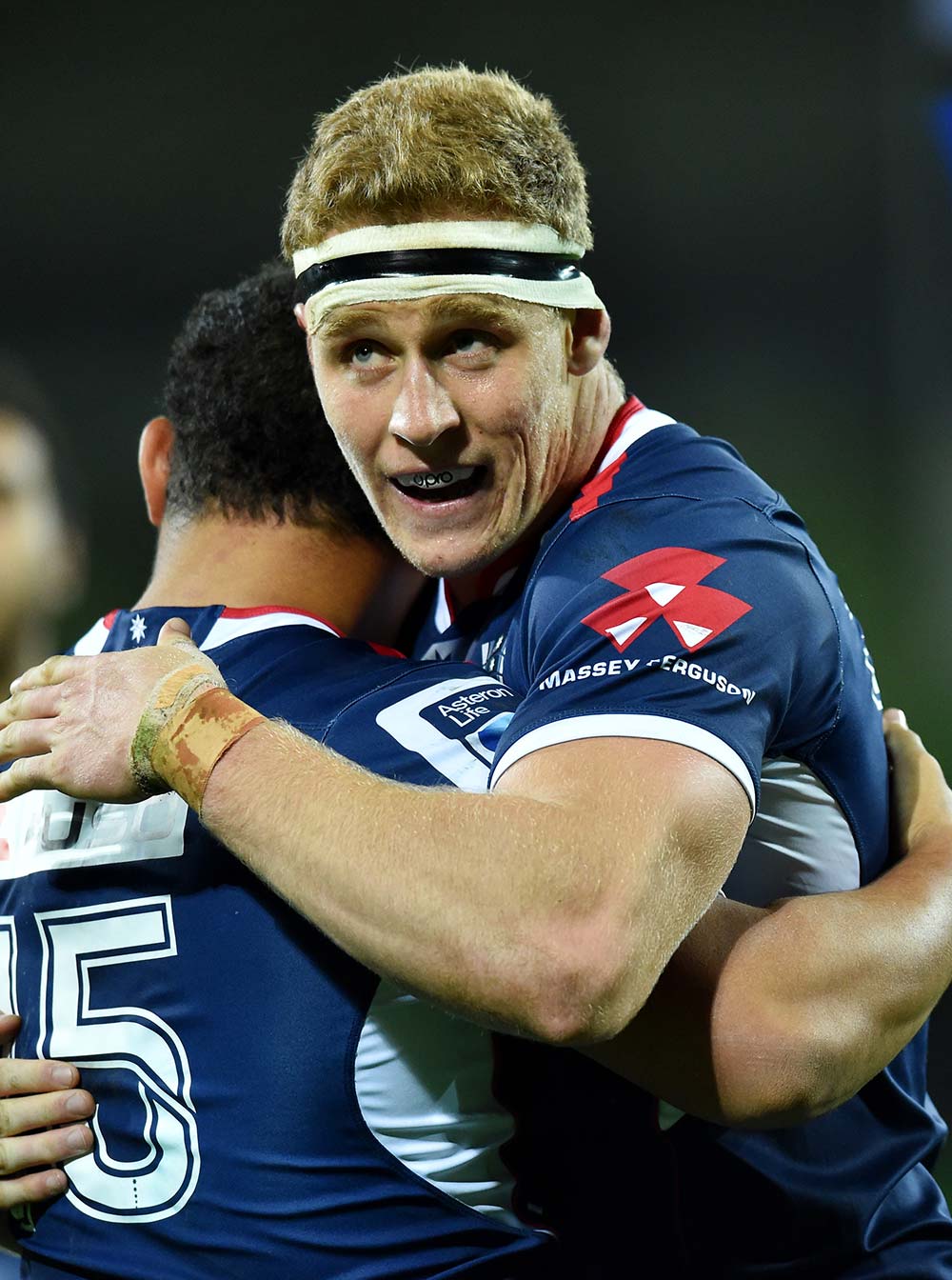
What, also, is the ARU board going to do about the woeful play of the supposedly untouchable Australian Super Rugby franchises, the Waratahs, Brumbies and Reds?
I have a new proposal (from me, at least) that should be considered. Others have put forward this proposal, too.
The only feasible way of resolving the five Super Rugby franchises into four problem is to adopt the New Zealand concept of each of the Australian franchises embracing several unions.
Instead of the Australian franchises being standalone organisations, they should be joint ventures with nominated other unions.
The Hurricanes, for example, played at Napier against the Brumbies over the weekend because the Hawkes Bay union is part of the Hurricanes franchise, along with several others including the Manawatu and Wellington unions.
The Brumbies franchise could be formally amalgamated with the country unions in NSW and Queensland, in a similar manner. They should play the occasionally Super Rugby match in a country town that has a decent stadium.
I am presuming the Force will ultimately be axed. I would argue that this blow can be slightly softened by joining the Force and Rebels franchises together, a link that would allow several Super Rugby matches to be played each year in Perth, against South African and New Zealand teams.
The point here is that somehow the growing interest in rugby in Perth has to be encouraged.
This sort of merger should be relatively easy to arrange for the famous business people who have been appointed to the ARU board. Just joking!
Surely, though, these brilliant business people have worked out an exit strategy for the franchise that is axed that embraces keeping them, even tenuously, in the Super Rugby loop.
Better late than never, hopefully.





























































































